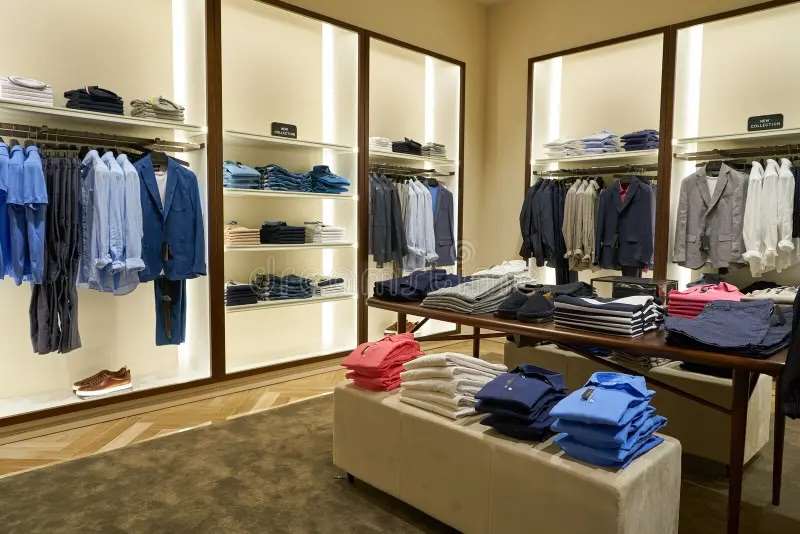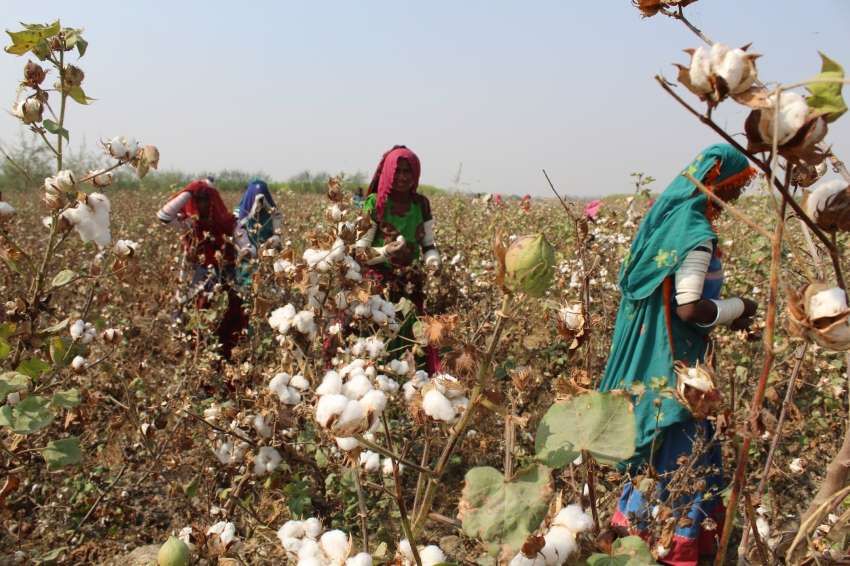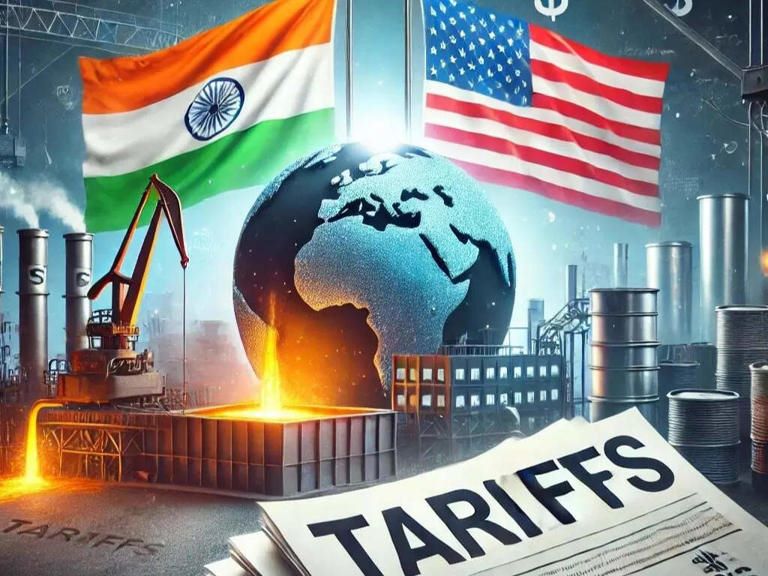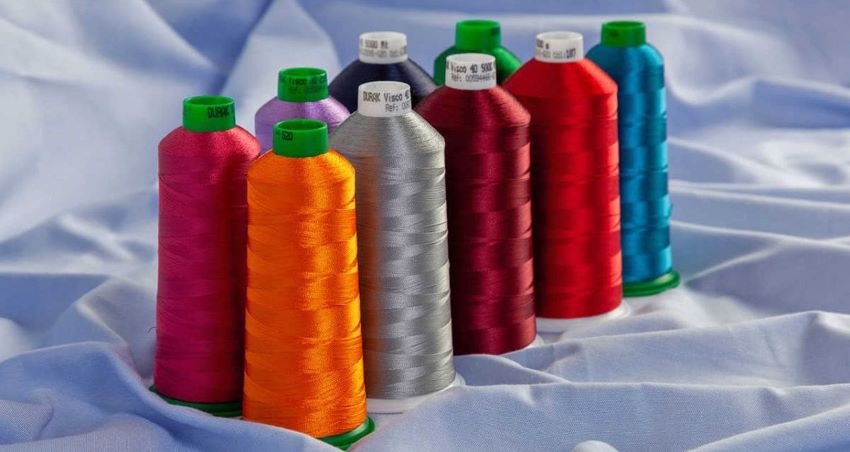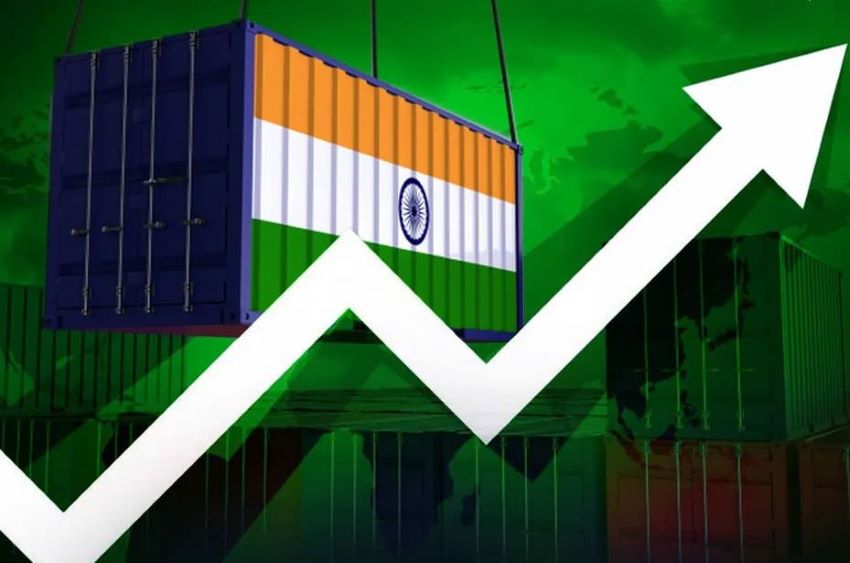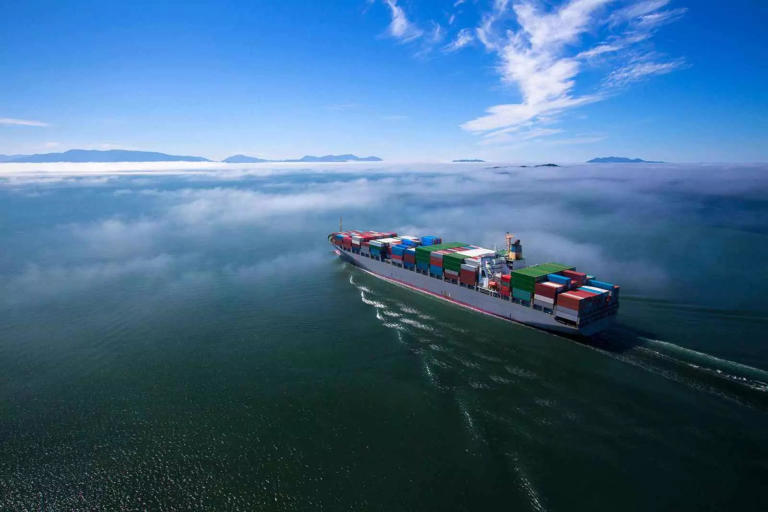FW
The Indian textile and clothing sector is likely to see slow growth in exports this year, especially sectors such as cotton yarn, due to decline in demand from China.Last financial year it had registered 41 billion dollars worth of exports.
China was one of the major markets for cotton and yarn exports from India. Though textile mills are now exporting to countries such as Bangladesh, Vietnam and Cambodia, the demand from China was huge.
This year, the industry expects export demand to be good for segments such as garments and home textiles. However the demand for yarn should increase in overseas markets. If not the export growth might be flat this year for the entire sector.
As in some countries, the average import duty on these products is high the Indian textile and clothing industry is looking for support to upgrade its technology to improve its efficiency and competitiveness. India’s nearly 35 per cent of annual textile and clothing production is exported.
The textile industry in India has two broad segments, handloom, handicrafts, sericulture, power looms in the unorganised sector and spinning, apparel, garmenting, made-ups in the organised sector.
The industry is extremely varied, with a hand-spun and hand woven sector at one end of the spectrum and a capital intensive sophisticated mill sector at the other.
Approximately 70 per cent of Hungarian textile and clothing industry business activities take place on European markets. The key partner countries are Germany, Italy, France, Austria, Romania, Russia, Switzerland, Great Britain and Scandinavia.
The first textile manufacturing factories were established in Hungary at the beginning of the 18th century. Given the country’s agricultural characteristics they dealt primarily with the processing of cotton, although Hungary was known for the processing of silk as well. At this time the working of flax and hemp cultivated in the country had not moved beyond a cottage industry because foreign competition and the fashion for printed pattern cotton fabrics raised difficulties for these products.
The sector is largely made up of small- and medium-size enterprises, although they are also attended by a considerable number of sole proprietorships. The number of registered enterprises approaches 4500, although it is true to say that the number of functioning businesses is somewhat smaller than this. The sector currently employs around 50,000 people, the vast majority being female labor.
Sub-sectors or products with potential from an export aspect are work and protective clothing, technical textiles, healthcare textiles, home and household textiles, other fashion items and automotive flooring.
China may be coming around to the Trans-Pacific Partnership free trade agreement the United States is currently negotiating, and the Asian nation could collaborate on the trade pact in one form or another.China thinks the TPP will be a possible approach for promoting Asia-Pacific economic integration.
The United States is negotiating the proposed TPP regional trade deal with Australia, Brunei, Canada, Chile, Japan, Malaysia, Mexico, New Zealand, Peru, Singapore and Vietnam.
China may be interested in participating in the trade program. Whether or not it opts to join, it will still have to follow the global rules of trade that come under TPP like enforceable labor and environmental standards and better intellectual property protection.
TPP could be a possible pathway to the Beijing-backed Free Trade Area of the Asia Pacific. However abiding by TPP’s rules could make countries like China and Indonesia uncomfortable as the pact’s high standards and strict regulations might surpass the development stage for some developing economies in the region.
Now China is working to promote the Regional Comprehensive Economic Partnership (RCEP), something developing economies might prefer. RCEP is a proposed free trade agreement between the ten Asean countries and the six nations Asean has existing FTAs with.
The Southern India Mills' Association for mills in Tamil Nadu want a comprehensive textile policy to ensure financial viability and competitiveness of existing manufacturing facilities in the state and encourage investment and value addition.
South Indian industry wants a policy for the entire textile value chain. Such a policy would make Tamil Nadu a global hub for textile manufacturing. Among the proposals are a VAT reduction on cotton textiles to two per cent from five per cent and removal of one per cent market committee cess on cotton and cotton waste. A steep increase in transportation costs is hurting the industry as it has to procure cotton from other states.
A major issue is that there should be a separate power tariff for the textile industry based on load factor and cost-to-serve basis.
The industry has made out a case for various incentives for new investments on the lines of the apparel and textile policy of Andhra Pradesh.
Tamil Nadu has a strong production base. It accounts for one-third of textile manufacturing facilities in India and earns over Rs 60,000 crores as forex earnings annually.
The net value addition in the textile industry in Tamil Nadu is about 37.5 per cent, the highest in the country. The state accounts for about 30 per cent of India’s export of textiles products.
Pakistan's export earnings from readymade garments during the first three quarters of this year have increased by 8.51 per cent in terms of value.The readymade garment industry has emerged as one of the important small scale industries in Pakistan as its products have a large demand both at home and abroad.
The local requirements of readymade garments are almost entirely met by this industry. The garment industry is also a good source of providing employment opportunities to a large number of people at a very low capital investment. It mainly uses locally produced raw materials.
Most of the machines used by this industry are imported or locally made and assembled.The production of garments by units depends on export orders directly or indirectly and these orders have somewhat risen in terms of value but they have fluctuated widely in terms of quantity.
Unlike Bangladesh, Pakistan grows its own cotton, produces its own yarn and manufactures its own finished fabrics. Pakistan has one of the largest textile industries in the world. Textiles account for 63 per cent of Pakistan’s exports and mills employ 20 per cent of the nation’s workforce. The industry of Pakistan has the potential for improvement in labor productivity, research and development, product diversification and branding.
India is leading the growth chart of major economies for the first time, with further growth expected says the World Bank Group’s latest Global Economic Prospects (GEP) report. The reforms have buoyed confidence and are improving business and investor confidence and attracting new capital inflows. Falling oil prices have also reduced vulnerabilities, paving the way for the country’s economy to achieve a growth of 7.5 per cent this year.
India comes in ahead of China, which has experienced a continued slowdown. China is easing to a growth rate of 7.1 per cent. Brazil has been less lucky, dipping into negative growth.
The decline in global oil prices has been a major benefit for the South Asia region, driving improvements in fiscal and current accounts, enabling subsidy reforms in some countries, and the easing of monetary policy. Growth in the East Asia and Pacific region is expected to ease to 6.7 per cent and remain stable over the next two years. A net oil importer, the region is expected to benefit from lower fuel prices, although commodity exporters Indonesia and Malaysia face pressures from lower global prices of oil, gas, coal, palm oil, and rubber.
In Pakistan, the manufacturing and service sectors are expected to continue to recover, but growth is expected to remain moderate. Growth in Europe and Central Asia is expected to weaken further to 1.8 per cent in 2015 as a result of the oil price collapse, geopolitical tensions, and related spillovers.
Apparel retailer Gap intends to close a quarter of Gap specialty stores in North America over the next few years, including 140 this year, potentially affecting thousands of jobs as the company struggles with a slump in sales.
The San Francisco-based Gap would also cut 250 jobs at its headquarters. As of January 31, Gap had about 1,41,000 full- and part-time employees in about 3,700 company-owned and franchise stores worldwide.
A series of fashion misses has resulted in shoppers turning away from Gap to fast fashion rivals.Gap is trying to bring in some compelling product to rejuvenate the top line and profitability. The label's women’s clothing business had been a challenge for several seasons due to quality and fit issues and because it was not trendy enough.
The announcement of store closures follows a management shakeup at the retailer. Gap expects to close 175 of the 675 specialty stores under the Gap label over the next few years, resulting in annual sales losses of about 300 million dollars. The company also expects to incur one-time costs of 140 million dollars to 160 million dollars, primarily in the current quarter.
Gap reported sales of 16.44 billion dollars for the year ended January 31.
After the closures, Gap will have 500 specialty stores in North America as well as 300 outlet stores. The company also plans to close some stores in Europe.
www.gap.com/
Africa's textile and apparel exports to the United States could quadruple over the next decade through an extended duty-free trade treaty. Africa can also create another 5,00,000 new jobs.
The trade program known as the African Growth and Opportunities Act (AGOA) provides eligible sub-Saharan countries duty-free access to the world’s top apparel market, giving Africa a competitive edge over suppliers such as Bangladesh and Vietnam.
The program, in which about 40 African countries are eligible to take part, is expiring on September 30 and could be extended another 10 years.Established in 2000, AGOA has already been renewed past its original 2008 expiration date.
Last year, US clothing imports from sub-Saharan countries were up nearly six per cent from 2013, as countries such as Lesotho, Kenya, Ethiopia and Tanzania participated in the program. With AGOA’s extension Asian firms with factories in Africa are likely to follow through on investment.
Though Africa has lower labor costs and abundant raw materials, such as top quality cotton from Uganda, congested ports, a poor road network, lack of skills and old technology are a hindrance. Costs may be rising in Asia, but they are still way more competitive than Africa, especially on productivity, quality and product range.
trade.gov/agoa/
The International Apparel Federation (IAF) has appointed a new Vice President, Carlos Botero, he is also President of Inexmoda, Colombia. Botero is already a member of IAF’s board and after organizing successful edition of IAF World Fashion Convention in Colombia last year, the organization is excited to have his expertise added to the executive committee.
The Vice President is part of the IAF's Executive Committee, which consists of President Rahul Mehta, Secretary General Matthijs Crietee, Immediate Past President Harry van Dalfsen and Treasurer Han Bekke. All bodies within the IAF have a global coverage and Carlos Botero is the America's representative in the Executive Committee.
Inexmoda is the organization behind the very successful ColombiaTex and ColombiaModa fairs. These fairs have been instrumental in making Colombia, and Medellín especially, into a strong regional hub for the fashion and textile industries.
ShanghaiTex ,that is taking place June 15 to 18, 2015. This, a textile and apparel technology exhibition, is widely supported by professional buyers from the textile industry. Buyer groups from India, Indonesia, Turkey, Korea, Philippines, Uzbekistan are expected.
An international exhibition that has been a fairground to textiles, textile products and equipments, textile machineries, textile goods and services, raw materials, clothing and garments materials and other textile correspondents. It features innovative displays of products and goods. Exhibitors get access to a wide variety of visitors and potential customers and wider business prospects.
Sportswear is one of this year’s show’s priorities. It will explore new textile applications. Thus the organizers have invited many domestic and overseas sports brands to ShanghaiTex 2015. Sports industry giants such as Nike, Jordan, One Way, Decathlon, New Balance, Peak etc have confirmed their participation.
ShanghaiTex is a biennial show that debuted in 1984. ShanghaiTex focuses on exploring eco-friendly and automated textile technologies and innovation to promote a more sustainable and greener economic development. The exhibition showcases the world's most advanced textile technology applications and latest development in high growth segments. Facing tremendous challenges brought about by environmental issues and fast-rising labor costs, China's textile and apparel industry has entered a transformation period.
www.shanghaitex.cn/en/

